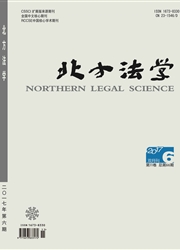

 中文摘要:
中文摘要:
日本法上的空白票据规则,对我国相关规则的完善具有借鉴意义。日本《票据法》第10条和《支票法》第13条是立法上明确承认的空白票据的基本依据。日本判例采用主观标准,强调行为人和收款人合意是构成空白票据的重要要件,也允许签发出票人空白的票据;空白票据也符合有价证券的基本构成,属于未完成票据;空白票据补充权从交付票据时起成立,应严格在授权范围内行使;空白票据也可以依普通完全票据一样的流通方式转让。
 英文摘要:
英文摘要:
The rules on blank negotiable instruments in Japanese law have significance of reference to improvement of pertinent rules in our country.Article 10 of the Negotiable Instruments Law and Article 13 of the Check Law in Japan are legislative basis for rules on blank negotiable instruments.Japanese case law adopts subjective criteria,holding that agreement between conductor and payee is an essential constituent of blank notes and negotiable instruments with drawers in blank are allowed to issue.Further,blank negotiable instruments are deemed as securities and incomplete notes.The right to supplement the note takes effect upon delivery of the negotiable instruments and such right should be exercised strictly in authorized scope.Blank negotiable instruments can also be transferred in the same way as common and complete notes.
 同期刊论文项目
同期刊论文项目
 同项目期刊论文
同项目期刊论文
 期刊信息
期刊信息
